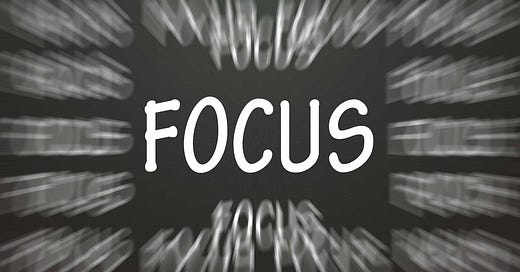It’s Still the Economy, Stupid
The first jobs report of the Biden administration beat expectations with the unemployment rate declining and the economy adding more jobs in February than economists forecast. But America still has 9.4 million fewer jobs than it did a year ago, which translates into a gap of 12 million jobs had pre-pandemic growth continued at the same pace.
Voters’ top three priorities remain strengthening the economy, dealing with the pandemic, and creating jobs – and it’s on these issues that will determine the Biden administration’s overall success and failure. Get these big issues right, and it will win political support. Falter on striking the right balance between tackling the pandemic and reopening the economy, and it will be hard to get much else done.
Three things to watch closely in the coming months:
1. Washington’s actions to jumpstart the economy and make public investments to support growth. The current debate over the American Rescue Plan for more fiscal stimulus is just part of a bigger debate about the public investments that the United States needs to make to compete in the world. There is an important public sector employment component of this, especially for state and local governments that employ teachers, police officers, and other key jobs essential to communities. As New York Times economics correspondent Neil Irwin notes, one dark spot in the latest jobs report was that state and local governments cut about 83,000 positions, including 63,000 in education.
There’s another debate that America will have about making public investments in efforts like infrastructure and research and development to overhaul America’s overall economic engine and strengthen America’s ability to compete in the post-COVID global economy.
This means that that pathway to success starts with continuing to deploy vaccines around the country and using smart public sector investments to set a stronger framework for economic and job growth for all – paying special attention to the groups and geographic parts of the country who have fallen further behind due to the pandemic and long-existing inequalities.
2. The private sector’s role in creating new jobs. The vast majority of jobs in America are created by the private sector – government has an important role in setting the framework for the economy and funding basic research, but it is the private sector that sparks growth and innovation. Key sectors such as manufacturing (especially in vital goods with weak supply chains exposed by the pandemic), technology, clean energy, health care, research and development, and education. Blueprints for reviving America’s economy and creating jobs need to remember the essential role private enterprise will play in the coming months.
It is smart that Biden has engaged business coalitions to build support for the American Rescue Plan, and a majority of America’s small businesses support this third stimulus. This continued engagement with the private sector needs to continue and to be coupled with an ongoing discussion with key groups like labor unions as the government seeks to make the right fiscal policy moves.
3. America’s economic ties with the rest of the world. A third important factor is how the Biden administration approaches a broad range of economic issues with the rest of the world, especially Asia and Europe, the two other largest engines of the global economy. Much of this focus remains on China, and the recent nomination hearings for Biden’s pick for trade representative, Katherine Tai, offered a preview of an approach that looks to prioritize American workers and develop and implement policies to support the aspiration of a foreign policy the middle class can support. Tai is poised to be an important part of the team that links the international and domestic policy moves the Biden administration is planning to make.
One key outcome in this effort by the Biden administration to create a stronger link between global economic policy moves to economic renewal at home should focus on building a new bloc in the global economy that will help America achieve these goals, as the recent Center for American Progress report, A More Perfect Union, argued:
“The core goal of U.S. economic statecraft should be to build a shared industrial and innovation ecosystem that spans both the Atlantic and Pacific oceans, incorporating America’s most important allies in Europe and the Asia-Pacific. This economic concert of power would bind America and its closest partners together in a shared project to compete effectively with China, promote the collective prosperity of its member nations, and show that democracy can deliver on its economic promises. While building and strengthening this group, the United States should seek to expand its economic engagement in India, Africa, and Latin America—regions of the world that are positioned to see economic growth and are also arenas of economic competition with China.”
Cleaning up the mess left behind over the past few years can induce a certain attention deficit disorder – with big challenges on multiple fronts from immigration to climate change to immigration and many foreign policy issues. But the Biden team should stay focused on what matters most.
In 1992, when the presidential campaign of Bill Clinton began to react to the news cycle and lose focus, his campaign manager James Carville reminded the team: “It’s the economy stupid.” Nearly three decades later, that remains a good reminder to the Biden team as it navigates its early months in office.





